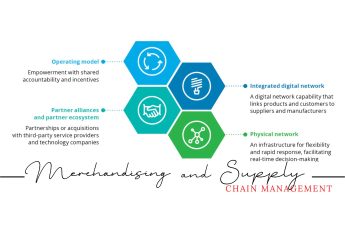Sustainable Clothing Manufacturers
Sustainable clothing manufacturers are companies that prioritize environmentally-friendly and socially responsible practices in their clothing production processes. These manufacturers aim to reduce the negative impacts of the fashion industry on the environment, such as pollution and waste, while also promoting fair labor practices and ethical sourcing of materials.
What does it mean to be a Sustainable Clothing Manufacturer?
Being a sustainable clothing manufacturer means prioritizing environmentally-friendly and socially responsible practices in the production of clothing. This involves taking steps to reduce the negative impacts of the fashion industry on the environment, such as pollution and waste, while also promoting fair labor practices and ethical sourcing of materials.
Some common practices of sustainable clothing manufacturers include:
- Using eco-friendly materials: Sustainable clothing manufacturers use materials that have a lower impact on the environment, such as organic cotton, recycled polyester, and TENCEL™. These materials are often produced using fewer resources and chemicals than conventional materials.
- Reducing waste: Sustainable clothing manufacturers take steps to reduce waste in their production processes, such as using fabric scraps to create new garments or recycling old clothing.
- Using renewable energy: Sustainable clothing manufacturers may use renewable energy sources, such as solar or wind power, to power their factories and reduce their carbon footprint.
- Promoting fair labor practices: Sustainable clothing manufacturers prioritize fair labor practices in their supply chain, such as paying workers fair wages and ensuring safe working conditions.
- Supporting local communities: Sustainable clothing manufacturers may also support local communities by sourcing materials locally and partnering with organizations that promote social and environmental causes.
Overall, being a sustainable clothing manufacturer involves a commitment to reducing the negative impacts of the fashion industry on the environment and promoting ethical practices throughout the supply chain. This includes considering the entire lifecycle of a garment, from the sourcing of materials to the disposal of clothing at the end of its life.
Sustainable Clothing Manufacturers
Here are some examples of sustainable clothing manufacturers:
- Patagonia: Patagonia is a popular outdoor clothing brand that is committed to using sustainable materials and production methods. They use recycled materials in their clothing, such as polyester made from recycled plastic bottles, and prioritize fair labor practices in their supply chain.
- Everlane: Everlane is a clothing brand that focuses on transparency and sustainability in their production processes. They use organic and recycled materials in their clothing, and provide information on the factories and workers who make their clothes.
- Reformation: Reformation is a sustainable fashion brand that creates clothing using eco-friendly materials, such as TENCEL™, organic cotton, and recycled polyester. They also have a program to reduce waste and carbon emissions in their production process.
- Eileen Fisher: Eileen Fisher is a clothing brand that focuses on sustainable and ethical practices in their production processes. They use organic and recycled materials, and have a program to take back and recycle clothing that has been used by customers.
- Mara Hoffman: Mara Hoffman is a sustainable fashion brand that uses eco-friendly materials and production processes, such as using digital printing to reduce water usage. They also prioritize fair labor practices and ethical sourcing of materials.
These are just a few examples of sustainable clothing manufacturers. When looking for sustainable clothing options, it’s important to research the company’s sustainability practices and certifications, such as the Global Organic Textile Standard (GOTS) or the Fair Trade Certified label, to ensure they align with your values.
What makes a Company Seem Unsustainable?
There are several factors that can make a company seem unsustainable. Here are some common ones:
- Environmental impact: A company that has a significant negative impact on the environment can be seen as unsustainable. This may include excessive waste or pollution, or the use of materials that are not sustainable or environmentally-friendly.
- Labor practices: Companies that have poor labor practices, such as low wages, unsafe working conditions, or exploitation of workers, can be seen as unsustainable.
- Lack of transparency: Companies that are not transparent about their practices or supply chain may be seen as unsustainable, as it can be difficult to assess their impact on the environment and society.
- Short-term focus: Companies that prioritize short-term profits over long-term sustainability may be seen as unsustainable, as they may be sacrificing long-term viability for short-term gains.
- Lack of innovation: Companies that do not invest in research and development or adopt new technologies and practices to reduce their environmental impact may be seen as unsustainable, as they are not adapting to changing conditions or addressing emerging sustainability challenges.
- Lack of social responsibility: Companies that do not engage in social responsibility initiatives, such as supporting their local community or partnering with organizations that promote sustainability, may be seen as unsustainable, as they are not contributing to the greater good.
A company that is seen as unsustainable is likely one that prioritizes profits over environmental and social responsibility, and is not taking steps to reduce their negative impact on the environment and society.
Changes Businesses can make to become Sustainable
There are many changes businesses can make to become more sustainable and reduce their negative impact on the environment and society. Here are some examples:
- Use renewable energy: Switching to renewable energy sources, such as solar or wind power, can help reduce a company’s carbon footprint.
- Reduce waste: Implementing waste reduction strategies, such as recycling or composting, can help reduce the amount of waste a company produces.
- Use sustainable materials: Using sustainable materials, such as recycled or biodegradable materials, can help reduce the environmental impact of a company’s products.
- Reduce energy consumption: Implementing energy-efficient practices, such as turning off lights and electronics when not in use or upgrading to energy-efficient appliances, can help reduce a company’s energy consumption and costs.
- Implement sustainable transportation: Encouraging employees to carpool or use public transportation, or switching to electric or hybrid vehicles for company use, can help reduce the carbon footprint of a company’s transportation.
- Support fair labor practices: Ensuring fair labor practices throughout the supply chain, such as paying workers fair wages and providing safe working conditions, can help promote social responsibility.
- Engage in philanthropy: Supporting local communities and organizations that promote sustainability and social responsibility can help a company contribute to the greater good.
- Invest in sustainability research and development: Investing in research and development to develop new technologies and practices to reduce a company’s environmental impact can help a company stay ahead of emerging sustainability challenges.
Overall, becoming more sustainable involves making changes throughout a company’s operations, from production to transportation to employee practices. By taking a comprehensive approach to sustainability, businesses can reduce their negative impact on the environment and society while also improving their long-term viability.




